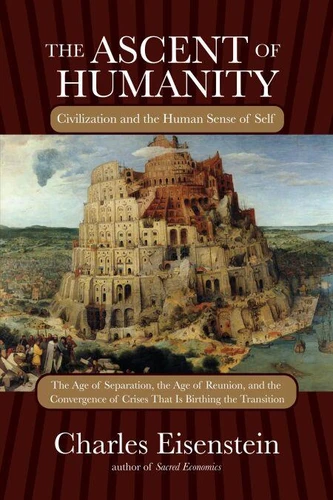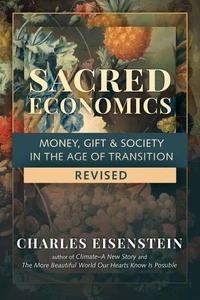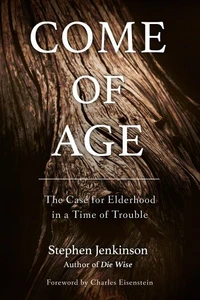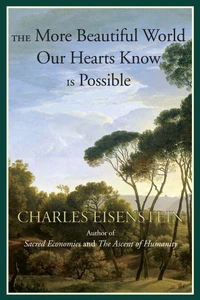The Ascent of Humanity
Par :Formats :
Disponible dans votre compte client Decitre ou Furet du Nord dès validation de votre commande. Le format ePub protégé est :
- Compatible avec une lecture sur My Vivlio (smartphone, tablette, ordinateur)
- Compatible avec une lecture sur liseuses Vivlio
- Pour les liseuses autres que Vivlio, vous devez utiliser le logiciel Adobe Digital Edition. Non compatible avec la lecture sur les liseuses Kindle, Remarkable et Sony
- Non compatible avec un achat hors France métropolitaine
 , qui est-ce ?
, qui est-ce ?Notre partenaire de plateforme de lecture numérique où vous retrouverez l'ensemble de vos ebooks gratuitement
Pour en savoir plus sur nos ebooks, consultez notre aide en ligne ici
- Nombre de pages576
- FormatePub
- ISBN978-1-58394-537-7
- EAN9781583945377
- Date de parution05/02/2013
- Protection num.Adobe DRM
- Taille3 Mo
- Infos supplémentairesepub
- ÉditeurNorth Atlantic Books
Résumé
The author of The More Beautiful World Our Hearts Know Is Possible explores the history and potential future of civilization, tracing the converging crises of our age to the illusion of the separate self Our disconnection from one another and the natural world has mislaid the foundations of science, religion, money, technology, economics, medicine, and education as we know them. It has fired our near-pathological pursuit of technological Utopias even as we push ourselves and our planet to the brink of collapse. Fortunately, an Age of Reunion is emerging out of the birth pangs of an earth in crisis.
Our journey of separation hasn't been a terrible mistake but an evolutionary process and an adventure in self-discovery. Even in our darkest hour, Eisenstein sees the possibility of a more beautiful world-not through the extension of millennia-old methods of management and control but by fundamentally reimagining ourselves and our systems. We must shift away from our Babelian efforts to build ever-higher towers to heaven and instead turn out attention to creating a new kind of civilization-one designed for beauty rather than height.
Our journey of separation hasn't been a terrible mistake but an evolutionary process and an adventure in self-discovery. Even in our darkest hour, Eisenstein sees the possibility of a more beautiful world-not through the extension of millennia-old methods of management and control but by fundamentally reimagining ourselves and our systems. We must shift away from our Babelian efforts to build ever-higher towers to heaven and instead turn out attention to creating a new kind of civilization-one designed for beauty rather than height.
The author of The More Beautiful World Our Hearts Know Is Possible explores the history and potential future of civilization, tracing the converging crises of our age to the illusion of the separate self Our disconnection from one another and the natural world has mislaid the foundations of science, religion, money, technology, economics, medicine, and education as we know them. It has fired our near-pathological pursuit of technological Utopias even as we push ourselves and our planet to the brink of collapse. Fortunately, an Age of Reunion is emerging out of the birth pangs of an earth in crisis.
Our journey of separation hasn't been a terrible mistake but an evolutionary process and an adventure in self-discovery. Even in our darkest hour, Eisenstein sees the possibility of a more beautiful world-not through the extension of millennia-old methods of management and control but by fundamentally reimagining ourselves and our systems. We must shift away from our Babelian efforts to build ever-higher towers to heaven and instead turn out attention to creating a new kind of civilization-one designed for beauty rather than height.
Our journey of separation hasn't been a terrible mistake but an evolutionary process and an adventure in self-discovery. Even in our darkest hour, Eisenstein sees the possibility of a more beautiful world-not through the extension of millennia-old methods of management and control but by fundamentally reimagining ourselves and our systems. We must shift away from our Babelian efforts to build ever-higher towers to heaven and instead turn out attention to creating a new kind of civilization-one designed for beauty rather than height.













